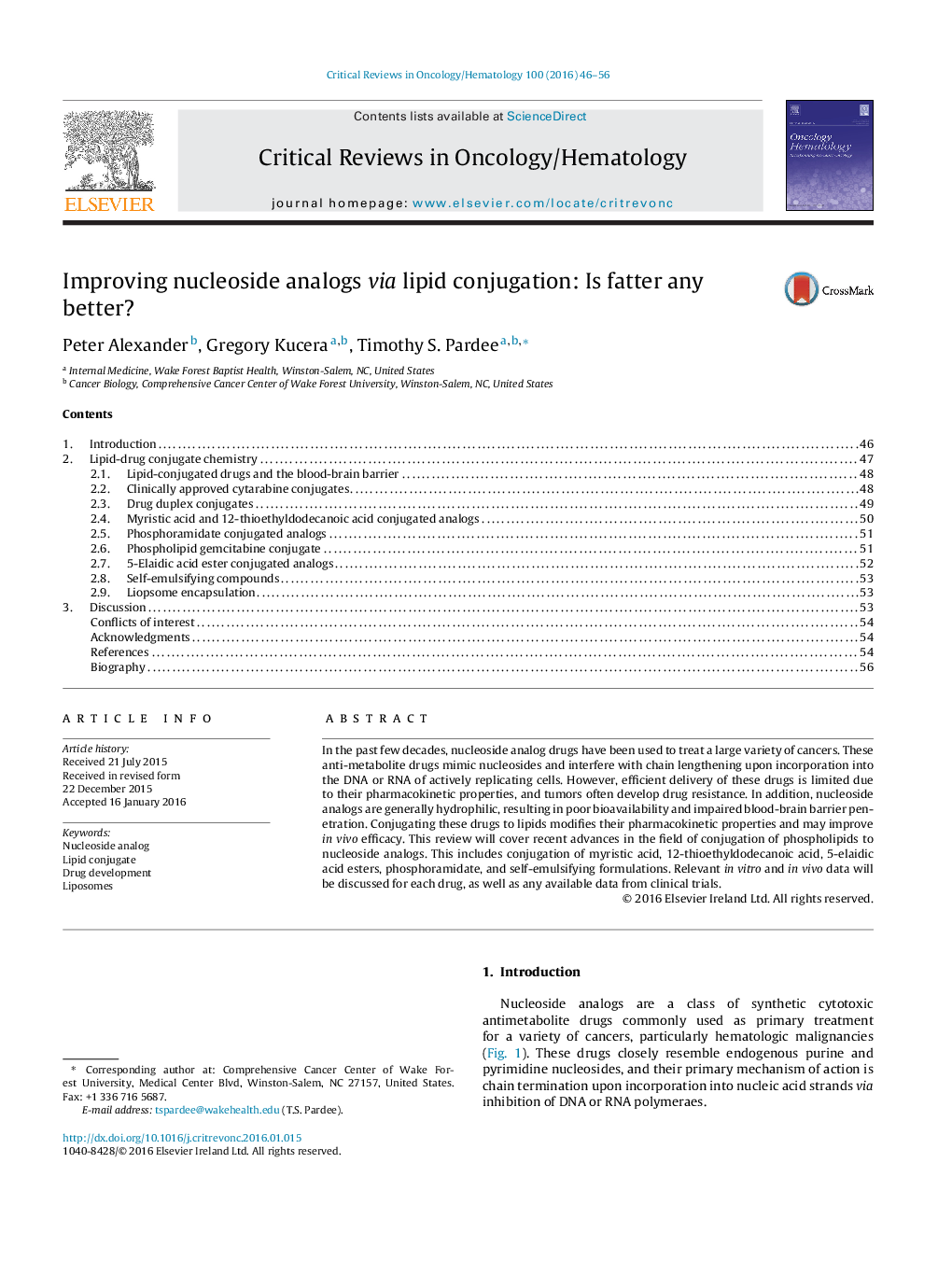| Article ID | Journal | Published Year | Pages | File Type |
|---|---|---|---|---|
| 6113425 | Critical Reviews in Oncology/Hematology | 2016 | 11 Pages |
In the past few decades, nucleoside analog drugs have been used to treat a large variety of cancers. These anti-metabolite drugs mimic nucleosides and interfere with chain lengthening upon incorporation into the DNA or RNA of actively replicating cells. However, efficient delivery of these drugs is limited due to their pharmacokinetic properties, and tumors often develop drug resistance. In addition, nucleoside analogs are generally hydrophilic, resulting in poor bioavailability and impaired blood-brain barrier penetration. Conjugating these drugs to lipids modifies their pharmacokinetic properties and may improve in vivo efficacy. This review will cover recent advances in the field of conjugation of phospholipids to nucleoside analogs. This includes conjugation of myristic acid, 12-thioethyldodecanoic acid, 5-elaidic acid esters, phosphoramidate, and self-emulsifying formulations. Relevant in vitro and in vivo data will be discussed for each drug, as well as any available data from clinical trials.
